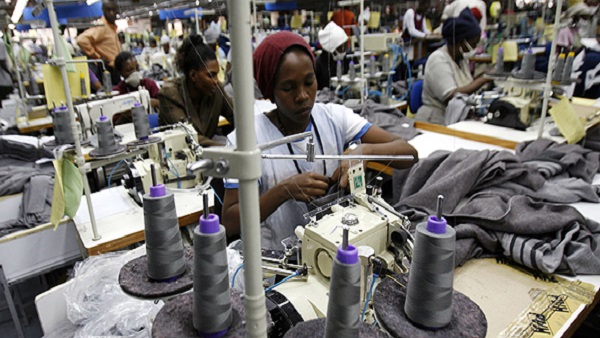Sub-Saharan Africa is concerned about the future of a trade pact with the United States after President Donald Trump said it only benefits the corrupt.
President Trump’s new policies may bring an end to the Africa Growth and Opportunity Act (Agoa).
“Most of Agoa imports are petroleum products with the benefits going to national oil companies. Why do we support that massive benefit to corrupt regimes?” he said.
There are now fears that his administration could repeal the Act.
“Agoa was extended for 10 years, and my conviction is that trade policy between the US and sub-Saharan Africa will remain despite the statement. But we need to observe how things develop,” said Richard Kamajugo, TradeMark East Africa senior director of trade and environment.
Enacted in 2000 by the Bill Clinton administration, Agoa allows 39 eligible sub-Saharan Africa countries to export certain goods to the US market duty-free. It was renewed in September 2015 by then president Barack Obama, and is slated to expire in 2025.
Repealing the treaty would be difficult considering that the US Congress must approve. The Act has been the cornerstone of US trade policy with Africa, and over 15 years it led to an increase in trade from about $20 billion to $100 billion in 2008. However, this figure declined to $36 billion in 2015.
Low trade
According to analysts, the fact that non-oil and gas exports into the US under Agoa stood at $4.1 billion in 2015, representing just two per cent of the United States’ total global trade, could have prompted President Trump to dismiss the Act as insignificant.
The non-oil Agoa trade increased marginally from $1.4 billion in 2001 to $4.1 billion in 2015. Apart from oil and gas, textiles, manufacturing, agriculture and artefacts have benefited from the treaty.
Utilisation of Agoa has been low, as just seven out of 39 African countries have taken advantage of the Act.
“Most countries have not benefited from Agoa because of supply constraints. It is for this reason that oil-producing countries have been the main beneficiaries, because it is a fairly mature product,” said Mr Kamajugo.
He added that scrapping the Act would not help, because it has benefited countries like Kenya, Botswana and Lesotho, which have seen the emergence of a vibrant textile sector.
“Scrapping Agoa is not the solution. The solution is identifying the bottlenecks so that other countries can benefit,” he said.
Export Processing Zones
In East Africa, Kenya has been the main beneficiary of the treaty, which has given rise to the Export Processing Zones and offers the country a growing coffee and artefacts market.
Repealing the Act would wipe out the EPZ sub-sector that employs about 40,000 Kenyans, and greatly reduce trade as textile and apparel products account for about 80 per cent of Kenya’s total exports to the US.
The 2015 Economic Survey shows that Kenya’s textile export to the US were worth $283.3 million in 2014. Other exports like coffee, titanium ore and artefacts accounted for $75.5 million.
In 2014, Tanzania’s exports to the US stood at $114 million. Statistics indicate that the value of exports has dropped from 18.8 per cent in 2000 to 4.1 per cent in 2015.
Uganda has not benefited significantly from Agoa as exports under the treaty dropped from $3.31 million in 2010 to $1.15 million in 2014.
Rwanda earned $187,000 in 2014 and $435,000 in 2015, mainly from apparel and macadamia exports to the US market.
The failure by many sub-Saharan countries to utilise the Act, which offers more than 6,500 products duty-free access to the US market, has meant that only a few countries, mainly oil exporting nations, have been the key beneficiaries.
Since enactment, Angola, South Africa and Nigeria have dominated exports to the US, accounting for almost 80 export. Angola and Nigeria have benefited by exporting oil and petroleum products, while South Africa has a more diversified product range of precious metals and stones, vehicles, iron and steel, machinery and agricultural products.
Source: theeastafrican



